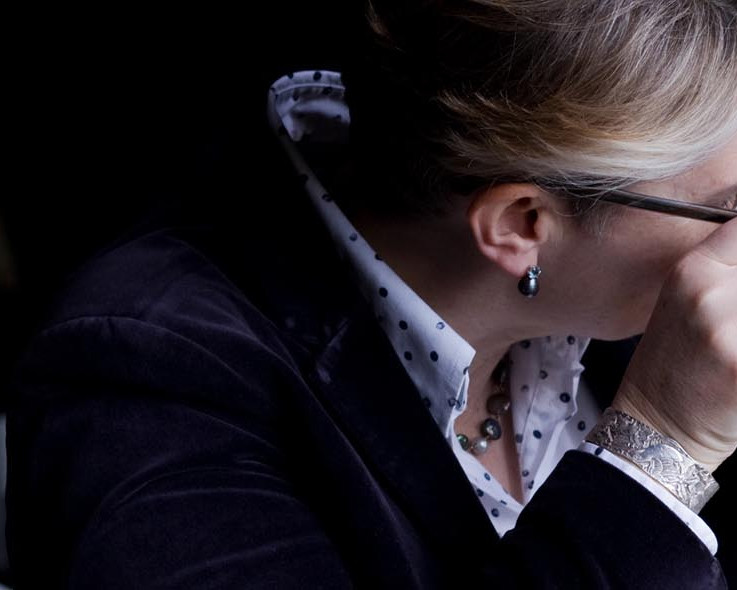
The interesting article below is reproduced from a piece by Luke Johnson, Chairman of Channel 4 who also runs Risk Capital Partners. The piece was printed in the Financial Times on 26 March 2008. At Winton House we try to match the sentiments in this article.
We work hard to ensure we look after our clients as well as possible, and place client service at the centre of all hospitality and events. We firmly believe in going the extra mile. At the end of the day, we want all our clients to have a great time here.
In fact, Winton House has won World Travel Awards for its client service and the quality of the venue for the last three years.
Closer to home, a recent survey of our clients, based on telephone interviews, showed that “the quality of staff and the resulting high quality service stand out as a key strength” and our “overall quality of customer care” achieved an average rating of 92%.
However, we know that we can do better and always welcome feedback from our clients, both positive and negative, and including criticisms and suggestions. Please email Morag Morrison or call on 01875 340222 at any time with your comments on the quality of our service.
The incalculable appeal of good service
by Luke Johnson
I recently spoke at an event hosted by Walpole, the association for makers of British Luxury goods. And in conversation with the senior executives we all agreed – it is not so much the products you sell that guarantee success but the service you provide to customers.
I have spent most of my career in the service industries. My big winners have invariably been companies that managed to capture customers with outstanding service – be it in retailing, private healthcare, recruitment or financial services. Great service generates repeat custom and loyalty – and word-of-mouth recommendations. Nothing is better at creating a powerful franchise.
Yet it is extraordinary how bad service can be in the hospitality industry in Britain, even at expensive hotels and restaurants. That is why there are so many wonderful opportunities in the sector – so many of the opposition are still doing the job so badly.
After all, what is it that patrons want when they go for a meal or seek a room for the night? They want a warm welcome, prompt attention and knowledgeable staff. They want personal recognition if they are a regular. They want consistency, courtesy and efficiency. And they want any problems dealt with swiftly and politely.
Mr experience, from owning classic restaurants such as Le Caprice, The Ivy & J Sheekey is that diners consider food, wine, value and décor important – but what really matters to them is how they are treated as people. When eating out, the public complains about noise, prices, bad food, crowds, dirt and so forth, but more than two-thirds of all complaints relate to poor service.
At PizzaExpress I saw all complaint letters. Frequently the issue was about how managers dealt with difficulties. The best managers know that you can turn round the most dissatisfied customer by exceeding their expectations. So if their meal has been slow, give them a drink – or possibly the entire meal – on the house. You may well switch them from being harsh critics to advocates.
In theory, delivering memorable service should not be difficult – the principles are straightforward. But the task of persuading employees to provide excellent service on every occasion is hard. The first step is to hire nice people, who are responsive and like dealing with the public. Cultivate a sense of pride in the organisation. Instil the belief from the top to the bottom that the customer comes first. Pay staff well, and give them extra for above-average performance. Provide strong leadership, show them respect and give them the correct equipment and support. Training can help, but I think picking individuals who enjoy their work is more important. And, as Donald Adams says, “To give real service, you must add something which cannot be bought or measured with money, and that is sincerity and integrity.”
Culture matters enormously. While French waiters are normally highly professional, they are also too often haughty – sometimes almost rude. I find this sort of clipped manner – evident in certain grand boutiques in London – to be off-putting.
On the other hand, Americans tend to understand real service. I buy my shirts at Brooks Brothers in New York because the store assistants take immense care of you – they are hired properly and given incentives – although when I’ve been to their shops in London the experience has been hugely disappointing. Similarly, I think the Four Seasons hotel chain tends to give remarkable levels of service.
The fascinating thing is that good service does not necessarily cost an organisation more to provide than shoddy service. It is an obvious way for entrepreneurs to gain an edge and take share from rivals – without requiring additional investment. But it does need constant effort and a skilled team.
Moreover customers are becoming more assertive in showing their dissatisfaction. Thanks to websites such as tripadvisor.com, bad experiences are communicated for the world to see. The hit-and-run approach to customers is not a sustainable business model. Be it tourism, sales, administration or aftercare, every business should excel at service if it wants to prosper.

